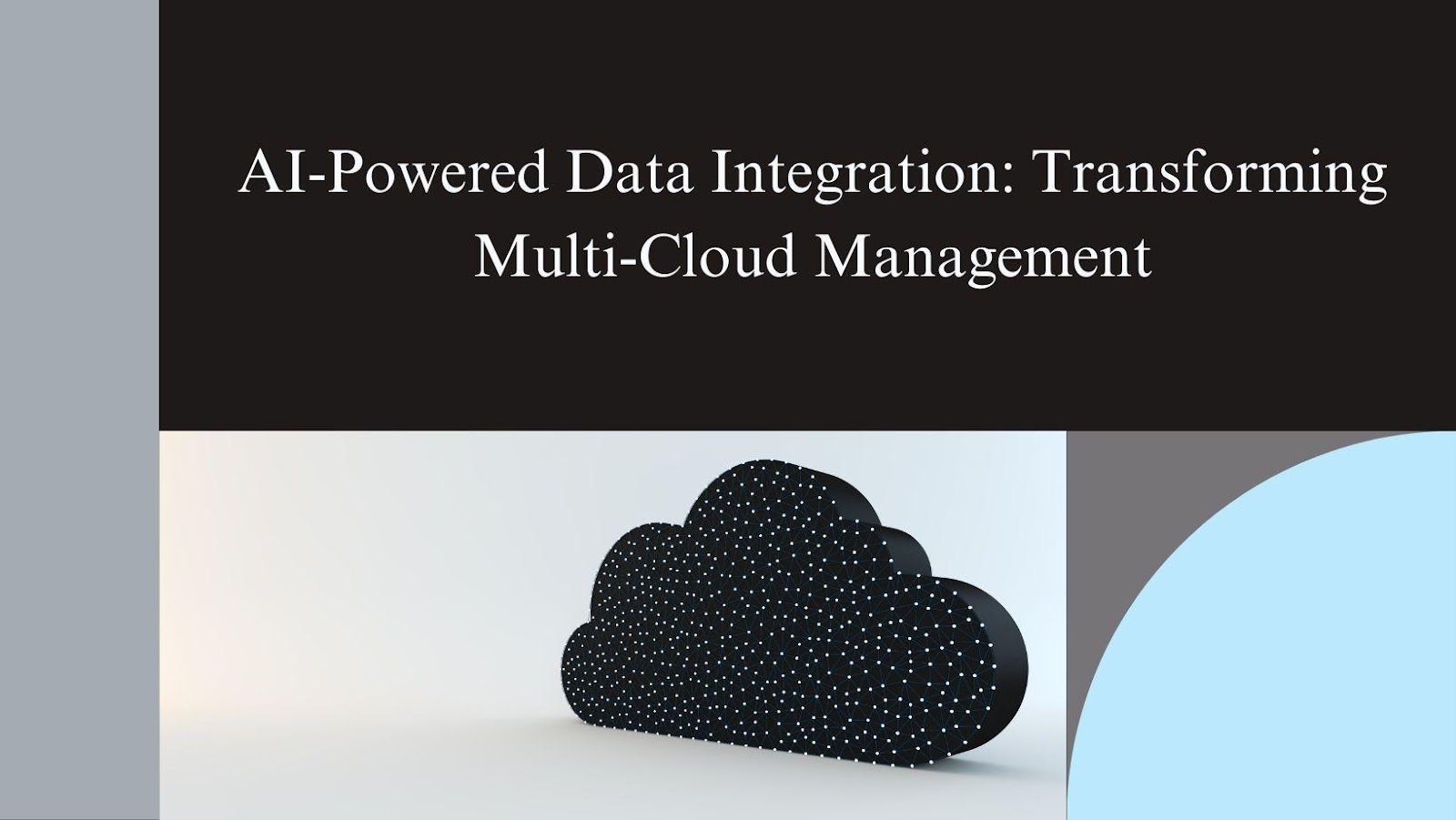Share Share Share Share Email In an era of complex digital ecosystems, artificial intelligence (AI) is reshaping how organizations manage multi-cloud environments. Prakash Reddy Vanga , an expert in cloud technologies, presents groundbreaking insights into AI-powered data integration, addressing critical challenges in managing distributed cloud infrastructures. This article explores how intelligent automation is revolutionizing cloud operations and enabling businesses to optimize performance, security, and cost-efficiency.
Bridging the Multi-Cloud Integration Gap As enterprises increasingly adopt multi-cloud strategies, they face challenges in data governance, latency, and operational visibility. Managing data across multiple cloud environments requires seamless integration, security compliance, and optimized performance. AI-driven solutions play a crucial role in addressing these complexities by automating data mapping, enforcing security policies, and ensuring efficient data synchronization across cloud platforms.

Machine learning algorithms streamline traditionally manual processes such as workload distribution, anomaly detection, and compliance enforcement. This automation not only improves efficiency but also reduces operational risks, enhancing scalability and resilience in cloud infrastructure. Automated Data Mapping: Redefining Connectivity One of the most time-consuming challenges in multi-cloud environments is harmonizing diverse data formats across platforms.
Organizations struggle with inconsistencies in data structures, leading to inefficiencies and potential errors. AI-powered integration tools tackle this issue by analyzing data structures in real-time, automatically mapping, cleansing, and transforming data to ensure uniformity. This process eliminates manual intervention, reduces human errors, and accelerates data workflows.
By streamlining data accessibility and enhancing interoperability, AI-driven automation enables organizations to make faster, data-driven decisions while optimizing operational efficiency across their multi-cloud ecosystems. Intelligent Data Movement: Optimizing Performance Data latency poses a significant challenge in multi-cloud environments, impacting real-time processing and system performance. Transferring information across cloud providers often leads to delays due to varying network conditions, bandwidth constraints, and inefficient routing.
AI-driven solutions address these issues by leveraging predictive analytics and adaptive routing techniques. These systems analyze network traffic patterns, dynamically selecting the fastest and most efficient data pathways. Additionally, AI optimizes compression strategies and processing efficiencies, reducing transfer times and operational costs.
This automation ensures seamless, high-speed data movement, enhancing responsiveness and overall cloud performance. Enhancing Security Through AI Governance Security and compliance are critical challenges in multi-cloud environments, where data moves across multiple providers with varying security frameworks. AI-powered governance models ensure uniform security policies by dynamically monitoring access controls, encrypting sensitive information, and detecting anomalies in real time.
These systems continuously analyze user behavior, flagging potential threats and adapting security protocols accordingly. By leveraging machine learning, AI-driven solutions proactively identify vulnerabilities and mitigate risks before breaches occur. This automated approach strengthens compliance with regulatory standards, minimizes unauthorized access, and enhances overall data protection across distributed cloud infrastructures.
Real-Time Analytics: The Future of Cloud Monitoring AI is revolutionizing cloud monitoring by providing real-time insights into infrastructure health. Intelligent tools track performance metrics, detect anomalies, and predict failures, ensuring proactive issue resolution. These AI-driven systems optimize cloud performance by identifying inefficiencies and recommending improvements.
By minimizing downtime and enhancing resource utilization, businesses achieve seamless, scalable, and cost-efficient multi-cloud operations with minimal manual intervention. Implementation Strategies for AI-Powered Integration Successfully deploying AI-driven cloud integration requires a structured approach. Organizations must assess their existing infrastructure, select suitable integration platforms, and implement governance frameworks.
A phased deployment strategy, starting with pilot programs, allows businesses to refine integration methodologies and maximize AI’s impact on operational efficiency. Future Trends in AI and Cloud Integration The future of multi-cloud integration is set to be shaped by emerging trends such as autonomous cloud operations, blockchain-based data security, and edge computing integration. AI will play a pivotal role in self-managing cloud environments, enabling automated decision-making and reducing manual intervention.
Additionally, natural language processing (NLP) will make integration tools more intuitive, enhancing accessibility for non-technical users. In conclusion, AI-powered data integration is transforming the way enterprises manage multi-cloud environments. By enabling automated workflows, intelligent monitoring, and robust security measures, AI enhances the efficiency and scalability of cloud operations.
As digital transformation accelerates, leveraging AI-driven integration solutions will be essential for maintaining agility and competitiveness. Prakash Reddy Vanga ’s insights emphasize how organizations can adopt these innovations to optimize cloud management and drive long-term success. Related Items: Multi-Cloud Management , Prakash Reddy Vanga Share Share Share Share Email Comments.
Technology

AI-Powered Data Integration: Transforming Multi-Cloud Management

In an era of complex digital ecosystems, artificial intelligence (AI) is reshaping how organizations manage multi-cloud environments. Prakash Reddy Vanga, an expert in cloud technologies, presents groundbreaking insights into AI-powered data integration, addressing critical challenges in managing distributed cloud infrastructures. This article explores how intelligent automation is revolutionizing cloud operations and enabling businesses to optimize [...]The post AI-Powered Data Integration: Transforming Multi-Cloud Management appeared first on TechBullion.















